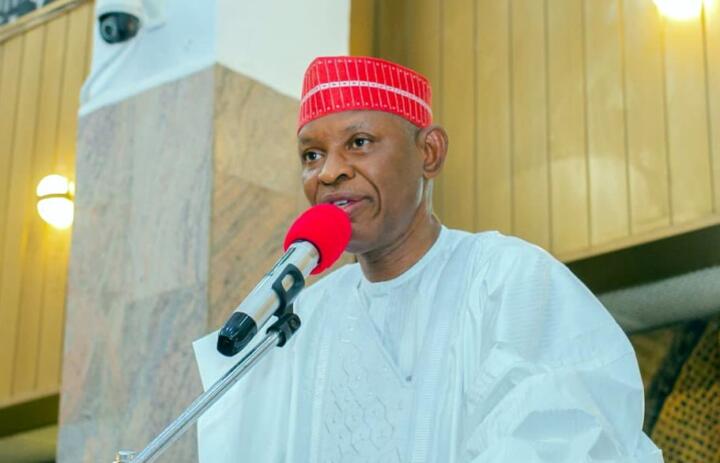The Kano State Government has approved the sum of N40.8 billion for the construction and rehabilitation of roads across different parts of the state, in a move aimed at addressing the infrastructure deficit and boosting economic activities.
Governor Abba Kabir Yusuf, who disclosed the development after the State Executive Council meeting, said the projects are part of his administration’s renewed effort to improve urban and rural road networks, reduce travel time, and create jobs for thousands of residents.

According to him, road infrastructure remains one of the central pillars of his government’s development agenda, as it directly impacts trade, agriculture, education, and access to healthcare. “Good roads are not just about transportation. They are about connecting people to opportunities, improving security, and driving development across every sector,” the governor stated.
The projects, which cover both urban renewal and rural access, include the construction of new highways, rehabilitation of dilapidated roads, and expansion of strategic routes within Kano metropolis and surrounding local government areas. Some of the major roads earmarked include the reconstruction of key arterial routes within the state capital and rural feeder roads that link farming communities to markets.
Officials said the approval followed a rigorous needs assessment and technical evaluation to ensure the funds are properly utilised. The Commissioner for Works, Housing and Infrastructure, Engineer Marwan Ahmad, explained that the projects are expected to be executed by reputable contractors with proven track records, and strict monitoring will be in place to guarantee quality and timely completion.
He added that the road projects would also prioritise sustainability, with modern drainage systems and durable materials to reduce the frequent road failures that have plagued the state in the past. “We want to ensure that every naira invested gives long-term value to the people of Kano,” he said.
The funding of the N40.8 billion road projects will come from a combination of state budget allocations, internally generated revenue, and in some cases, partnerships with development agencies. Government officials noted that the projects are in line with the state’s medium-term infrastructure plan, which aims to reposition Kano as a leading hub for commerce and investment in Northern Nigeria.
Residents have welcomed the announcement, describing it as a timely intervention. For years, road users in Kano have decried the poor state of major roads, particularly during the rainy season when potholes, flooding, and erosion make transportation difficult. Traders and transporters argue that the bad roads increase vehicle maintenance costs, extend travel time, and reduce profits.
One commercial driver, Mallam Abdullahi, said the move will ease the hardship faced daily by motorists. “We spend too much time on bad roads and waste money repairing our vehicles. If government can fix these roads, it will bring relief to us and even reduce accidents,” he said.
Farmers in rural areas also see the decision as a boost to agricultural productivity. With Kano being a leading producer of grains and vegetables, better rural roads will allow farmers to move their produce more efficiently to city markets, reducing post-harvest losses and improving income levels.
The private sector has also applauded the initiative. According to the Kano Chamber of Commerce, Industry, Mines and Agriculture (KACCIMA), good road infrastructure is critical for sustaining the state’s commercial advantage. “Kano is the heartbeat of trade in Northern Nigeria. With improved roads, goods and services can move faster, and this will encourage more investors to look towards the state,” a statement from the chamber noted.
However, experts have cautioned the government to ensure transparency and avoid cost inflation, a problem that has plagued infrastructure contracts in the past. Civil society groups have called for citizen monitoring of the projects to guarantee accountability. They argue that road contracts in Nigeria often suffer delays, cost overruns, or outright abandonment, leaving residents stranded despite huge financial outlays.
Governor Yusuf assured that his government would not tolerate corruption in the execution of the projects. He promised that any contractor who fails to deliver quality work within the agreed timelines would face sanctions, including contract termination and blacklisting.
The road initiative is expected to generate hundreds of jobs during the construction phase. Local artisans, engineers, and suppliers will benefit from the contracts, while improved mobility will create indirect employment in transportation and commerce.
Looking ahead, government officials stressed that road construction and rehabilitation would remain a continuous process under the current administration. Plans are underway to gradually expand the state’s road network to underserved areas and integrate smart technologies in traffic management.
Governor Yusuf concluded that his administration is committed to ensuring that every community in Kano feels the impact of government policies. “We want to leave behind a legacy of infrastructure that outlives us, one that future generations can build upon,” he declared.
The approval of N40.8 billion for road projects reflects the state’s recognition of infrastructure as a key driver of socio-economic transformation. If executed transparently and efficiently, the initiative has the potential to ease transportation challenges, strengthen commerce, enhance agricultural value chains, and improve the overall quality of life for millions of Kano residents.
Support InfoStride News' Credible Journalism: Only credible journalism can guarantee a fair, accountable and transparent society, including democracy and government. It involves a lot of efforts and money. We need your support. Click here to Donate
